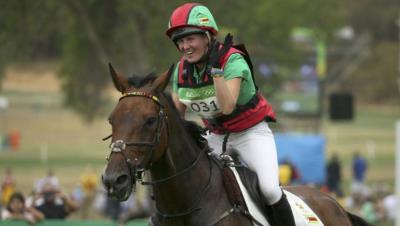Once the preserve of the ruling white minority, horse racing in Zimbabwe adapted to survive independence in 1980 by attracting a loyal following of local fans who enjoyed a bet.
Now the country’s only track, at Borrowdale outside Harare, is threatened with closure — highlighting how a worsening economic crisis has pushed even the hardiest of colonial-era legacies to the brink of extinction.
“We do fear for the long-term survival of the sport,” leading trainer Bridget Stidolph told AFP, as she stood in the unsaddling paddock after a race.
“We often ask ourselves how we keep going, but we want to continue for as long as we can. Racing is popular in Zimbabwe. There is just no money for people to spend.”
As owners, breeders and gamblers all pull out, the number of racehorses stabled in Zimbabwe has dropped from nearly 500 five years ago to just 120 today.
Only four full-time trainers, all of them white, remain in business.
Zimbabweans’ love of a wager kept the sport alive, but the country’s economic output has halved since 2000 and unemployment stands at over 90 percent — sending betting revenue to new lows.
No official gambling figures are available, though attendance for the flagship Castle Tankard race on May 6 was only a few thousand people compared with crowds regularly in excess of 20,000 several years ago.
“I was given a free ticket for today,” said spectator Keddy Masango, 30, an unemployed man from Harare.
“I used to have a bet. I can’t gamble without money. Now I just come here for the day to look.”
We often ask ourselves how we keep going, but we want to continue for as long as we can. Racing is popular in Zimbabwe. There is just no money for people to spend.
“Zimbabweans love racing and having a bet, so it is sad that many can’t enjoy their entertainment,” said Cuthbert Mangoma, who works as a driver, admitting he lost $40 (37 euros) betting during “a day when I had no luck”.
The crowd at the races is mostly male, with some taking advantage of cheap beer supplied by the sponsors, Delta Beverages.
Older punters study race forms in tattered newspapers, while clerks use chalk to write up betting odds on blackboards.
Gambling is still a cash transaction in Zimbabwe, but banknotes are scarce after hyperinflation 10 years ago forced the national currency to be abandoned in favour of the US dollar.
Efforts by the racecourse to evade the cash shortage by installing card swipe machines at betting booths have done little to revive turnover.
For many in Zimbabwe, horse racing seems far removed from the everyday reality of long queues outside banks as people wait several hours to make a withdrawal often limited to just $50 a day.
– By AFP






